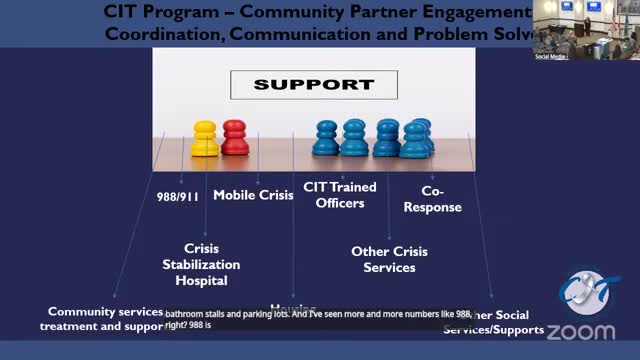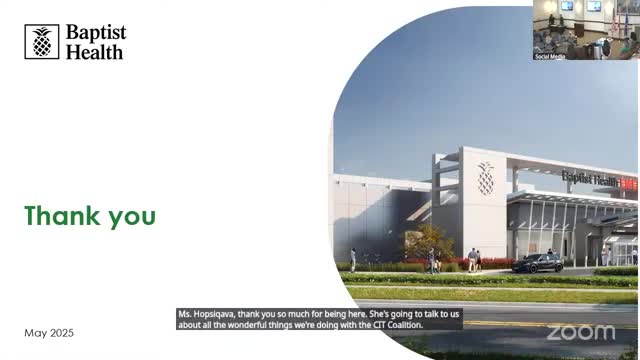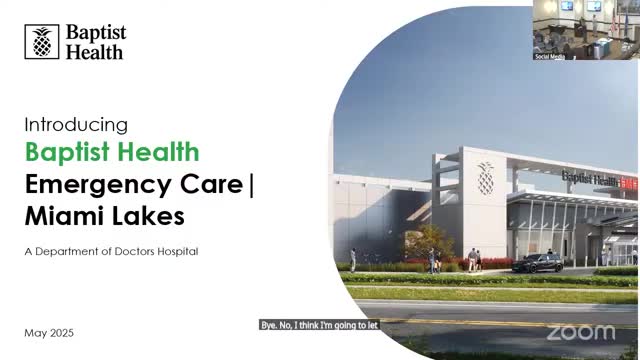Article not found
This article is no longer available. But don't worry—we've gathered other articles that discuss the same topic.

Thriving Mind and mobile response team outline 988, peer supports and in‑person crisis response for Miami‑Dade

Miami‑Dade CIT coordinators outline training and diversion outcomes; presenters cite sharp reductions in jail bookings

